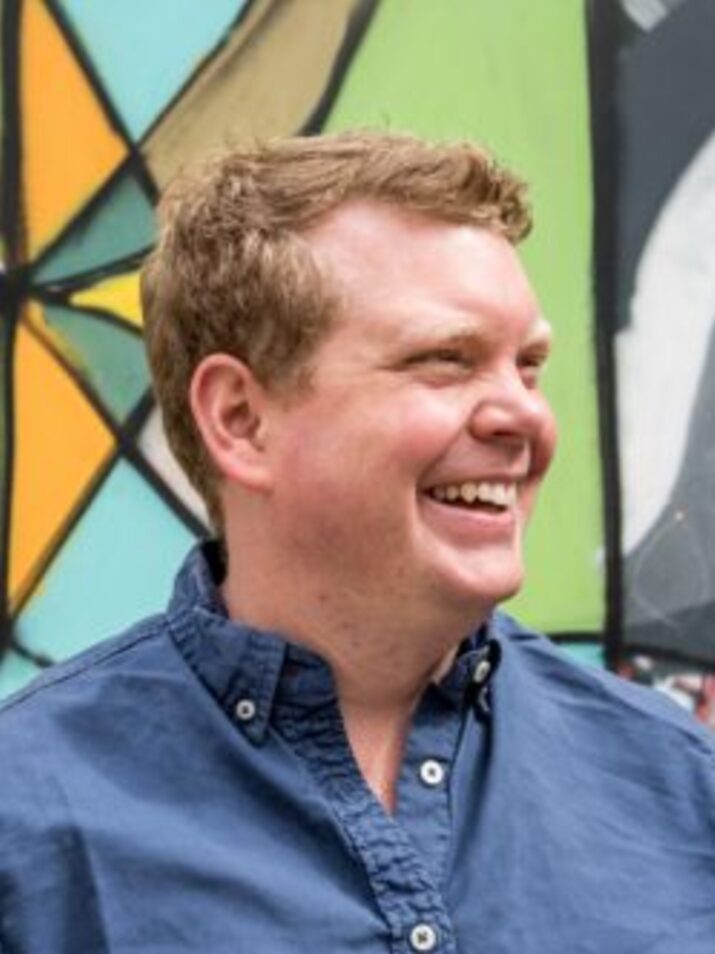Why have a lightbulb moment when you can have a floodlit one?
Picture it. You’re out after dark. Somewhere a switch is flicked, a floodlight comes on, and your view suddenly changes. Then another lights up, and another. How you thought the world looked is now completely different.
We talk about lightbulb moments: that sudden realisation or inspiration. But sometimes the metaphor is too small, a single 40w bulb not doing justice to the breadth of the light being cast. In contrast, those floodlight moments recast the world in a different light, giving a view so sharp and clear that once seen, it cannot be unseen. These are rare, deeply personal moments. For me, Obama talking about a nuclear-free world. Simone Biles on her mental health. Fred Laloux on Teal organisations.
Enter Victor Montori – diabetes doctor from Lima, based at the Mayo Clinic in Minnesota, and with us last week in London. Through his writing, and the non-profit he leads, Victor advocates the need for careful and kind care, a wholesale revolution of how healthcare should be. “Caring is not meant to be efficient, it is meant to be elegant” Victor writes.
During his visit, Victor was switching on floodlights at a ridiculous rate, describing a revolution which is evolving, growing, opening up new ways of thinking.
Three new vistas stood out for me.
- Care giving’s role in society
Victor’s manifesto starts with the need to put care back into healthcare. Yet the act of caring, as both a personal and professional act, needs to be valued by society in a completely different way.
“Let’s make caring sexy again,” Victor says, articulating a world where the greatest honour is not to make money or titles, but to be seen as a caring person. “We have outsourced our need to care to immigrants and women of colour,” Victor says starkly.
To rethink medicine isn’t to start with students and curriculum, but with those much younger. “Covid has shown us a world where we stand in the streets and cheer for care-givers. For our children this cannot be taken back.”
In this way the title of Victor’s book – the need for a patient revolution – has been outgrown. This isn’t really about patients, or the healthcare encounter, but the communities in which we live.
- Change the soil
Little of what is articulated in Victor’s book Why we Revolt, the English programme of Rethinking Medicine, or its Celtic counterparts Realistic Medicine and Prudent Healthcare, is new. We have been talking about shared decision making for decades. Aristotle knew a thing or two about wellbeing and prevention.
In the NHS we do not lack for initiative after programme after taskforce to try and make a shift away from the status quo. Yet the fact we try all of this ‘new’ is a sign that the soil which we are trying to cultivate is so hard that we have given up trying to change it.
Instead, we opt for the path of least resistance: a shanty town of projects and pilots, ‘change days’ and commitments, all of which lack the muscle to do more than scratch the surface. “We cannot see this as a process of incremental change,” Victor said, acknowledging some may disagree. “It requires fundamental change of what we think we’re here to do.”
- This might take a while….
Feeling daunted by any of this yet? Join the club. This isn’t a task which is quick; I’ve previously written about the need for a 100 year plan. The fruits of our labours now may only be felt by our children, or their children. 2100 seems far distant, but over 10% of the UK population then is alive today. Just sent your child to school for the first time? There’s close to a 3 in 4 chance they’ll get to party like it’s 2099.
We need to recalibrate the interventions which will make the long-term difference while not forgetting we need to start somewhere. If we make 1% of the change a year, in 100 years we get there – so what’s this year’s 1%?
And even working at that rate, the chances of it working are slim. “I know exactly our chance of success,” Victor proclaimed. “It’s 7%. But what else would we rather do with our time?” This is how change happens. “Never doubt that a small group of thoughtful, committed citizens can change the world” wrote Margaret Mead. “Indeed, it’s the only thing that ever has.”
Speaking to an audience in London,Victor invoked Hamilton: “Raise a glass to the four of us / Tomorrow, there’ll be more of us /Telling the story of tonight.”
If you agree with the bright illumination Victor gives, and the revolution ahead, what part in this story do you want to play? At Kaleidoscope, we’re in. What about you? Comment below, or join the revolution.

Rich Taunt
Rich Taunt is the founder of Kaleidoscope Health and Care, a not-for-profit social enterprise which brings people together to improve health and care. Kaleidoscope works with a range of NHS organisations, charities, and others, to find new solutions to old problems. In previous lives, Rich held senior positions at organisations including the Department of Health and Social Care, the Health Foundation, and the Care Quality Commission. Web: kscopehealth.org.uk Twitter: @richardtaunt
Declaration of interests
I have read and understood the BMJ Group policy on declaration of interests and declare the following interests:
Rich Taunt works at and owns shares in Kaleidoscope Health and Care, a Community Interest Company regulated by the Office of the Regulator of Community Interest Companies. Kaleidoscope Health and Care and the Nuffield Trust were commissioned by Imperial College Healthcare NHS Trust to conduct the user research referenced in this article. No payment was received for this article.
*This blog was revised 17th Sept 2021 to include changes to headings.